Planning your first overnight passage? Wondering what it’ll really be like . . . and how you’ll sleep? There are no universal answers, but I can pass on some tips from ours experience. Interestingly, good sleep doesn’t begin when you lay your head on the pillow, but well before.
Make Sure the Boat is Ready
Don’t just assume that the boat is ready, but check all the major systems. Every boat will have its own list, but common items include the following.
- Make sure bilge pumps work and the strainers are free of debris (and hair — the big culprit on boats).
- Test the EPIRB.
- Check the contents of the ditch bag. Make sure the life raft and ditch bag are accessible.
- Check the oil in the engine and the transmission fluid.
- Start the motor up and make sure that cooling water is circulating and the engine not overheating (the raw water intake can get blocked by bottom growth or debris sucked in).
- Clean the bottom of the boat.
- Have the jacklines in place.
- Create routes for the chartplotter and backup systems. Create alternate routes for bailout places. Research emergency stops.
- Water the batteries if using lead acid batteries.
- Turn on the radar and make sure it’s working — you don’t want to discover there’s a problem just as you need it.
Having confidence in the boat relieves a lot of stress — often stress that you don’t even realize is there. And stress takes away from the enjoyment of the passage as well as interferes with sleep.
Train your Watch Crew
You want to feel confidence in other watch standers. Not everyone will be equally skilled or knowledgeable and that’s okay. We all had to start somewhere. But everyone has to have basic skills and the ability to do basic boat operations. They also need to know when to call the others on board for assistance.
The basic skills can’t just be learned in an hour the day before a trip. And they can’t be learned just by reading. Day trips leading up to the overnight passage have to be used as training and practice sessions. Everyone who will be taking a watch must be comfortable with basic boat operations. They also need to know when to ask for help.
We also have a set of “standard operating procedures” that we both agree to:
- put in an extra reef before dark
- always wear our tethers
- never go on deck without the other person in the cockpit
- and we never hesitate to wake the other one if there is the slightest question about anything.
One other rule that Dave abided by (at the risk of too much information) was no peeing overboard while alone on deck. Seriously, this is one of the biggest causes of men going overboard when the boat hits a wave wrong.
Assuming that there is more than one of you, being comfortable with what the other person is doing is huge for being able to sleep. It’s funny, but knowing that Dave didn’t hesitate to wake me (and vice versa) let me sleep much better. I never felt like I had to keep “one ear open” for signs of a problem.
Start Well-Rested
It’s easy to get caught up in last-minute preparations. You may also worry about whether you’re really ready and not sleep well the night before a passage. But starting out sleep deprived puts you in the hole to start with.
We learned to try to have all the big jobs done before the last day. On the final day, we just had to take trash ashore, stow the dinghy for the passage and top up water. I’ll also did food prep, but we tried to have everything done by late afternoon. That allowed us to enjoy a nice dinner and just relax in the evening.
Keep Food Simple
My first couple of overnight passages, I seriously over-complicated our meals. I planned three large meals, including a “special dinner” to commemorate our first night out. With no real idea of what even “benign” offshore conditions would be like, I had no idea what would be appropriate. Planning to spend three hours cooking a single meal was just plain stupid. And exhausting.
Now, we’ve discovered that we eat more snacks — healthy snacks, not junk food — than real meals. Our favorites included trail mix, single servings of fruit, yogurt, that kind of stuff. Once a day, if conditions aren’t bad, we have a meal together but keep it simple. If it was hot out, we eat a cold salad. If it was cool, I’d warm up a pre-cooked dish.
As you get more experience with passages, you may decide to carry ingredients for more elaborate meals and use them if conditions allow. But for the first few trips, while you’re figuring things out, keep it simple so that meal prep does not interfere with sleep time.
Quiet the Boat
As you are on watch, be aware of any “little noises” such as clanking glasses or rattling pans that could bother the person sleeping. Quietly, do what you can to stop them. Generally, stuffing rags into lockers is a quick fix. Change the settings (if necessary) on electronics so they don’t beep when buttons are pressed.
Sometimes, too, just a 5° course change can have a profound effect on the motion of the boat so that it’s easier for the off watch to sleep.
Choose the Best Watch Schedule for Your Crew
You know your own body, how much sleep you need and how long you can be alert on watch. Many couples opt for either 3 or 4 hour watches in typical conditions.
Dave and I discovered that we did far better with roughly 6-hour watches as we preferred more sleep in one stretch. That said, we were somewhat flexible in the watches. If the off watch was sleeping soundly and the person on watch was still feeling good, we went on a little long. If the off watch woke early and there weren’t any jobs that had to be done, we’d swap early. And if conditions were challenging — not just weather, but the amount of traffic or anything else — we shortened the watches.
If we had an “all hands on deck” situation (generally a squall), we’d rearrange the watch schedule when it was over. We found that with just two of us, flexibility was key. Our time on watch equaled out but generally didn’t go exactly by the clock.
While we think of the person on watch as the one with responsibilities, the off watch has one important duty: to get sufficient rest that they are alert and ready to go when it is time for their watch. Even if you don’t think you can fall asleep, lie down and rest.
Plan for Drowsiness
Rather than assuming that the person on watch won’t get drowsy at 3 AM, plan for it. We each had a timer, set for 10 minutes, on our watch. You can use any timer, although it’s best if it automatically repeats. That way, if we do doze off, the alarm will wake us and prompt us to look around. Every time it went off — day or night — we stood and did a full 360° scan of the horizon. You don’t want to set it for much longer than 10 minutes, due to the speed with which cargo ships move! It’s also a good idea to use radar and AIS alarms if so equipped, but neither one is a substitute for slowly scanning the horizon every 10 minutes.
Why Sleep Deprivation is a Serious Problem
Exhaustion leads to bad decisions and bad decisions lead to injuries and boat damage. What should be minor problems become cascading disasters. Charts are impossible to decipher. After a few days, hallucinations can start (read about the space chimp that visited my friend and fellow Boat Radio podcaster John Herlig). Others have written about hearing voices or seeing people.
One of our hard and fast rules was that we didn’t enter unfamiliar harbors after dark, no matter how tired we were. We knew that at the end of a trip, we were tired and probably not thinking and reacting as well as we should. It’s easy to run aground, get confused as to where we need to go, or just “not see” traffic in a busy harbor.
So we slowed down to arrive after sunrise, hove-to, or just circled outside a channel. It wasn’t fun and it added more hours to the trip. But we thought it was safer to approach during daylight when we’re tired.
Cruiser Tips
Several cruisers we’ve met affirmed that six-hour watches worked for them as well. Cruiser David Skolnick has also suggested that clearing away stuff before leaving is key. You don’t want things flying across the boat underway. He also adds that leave when you’re ready and well rested. Perhaps that means starting out in the evening or the wee hours of the morning. Time doesn’t matter. Your crew’s condition does.
He also suggests that for a long ocean passage, it might be even wiser to take one additional crew instead of sailing short handed.
Mark, a former delivery captain also affirmed that watch schedules should be flexible to suit the crew. On his deliveries, watches only started at dusk and lasted until breakfast. The lack of a formal watch schedule during daylight hours allowed flexibility and seemed to benefit crew morale.
I certainly don’t have all the answers and while I’ve done numerous two- to four-day passages, I haven’t done any longer than that. And only two of mine have included sustained winds over 30 knots. We’ve been tired when we hit land, but never totally exhausted. Please add your own tips for getting sufficient sleep on overnight passages.

Quickly find anchorages, services, bridges, and more with our topic-focused, easy-to-use waterproof guides. Covering the ICW, Bahamas, Florida, and Chesapeake.
Explore All Guides

Carolyn Shearlock has lived aboard full-time for 17 years, splitting her time between a Tayana 37 monohull and a Gemini 105 catamaran. She’s cruised over 14,000 miles, from Pacific Mexico and Central America to Florida and the Bahamas, gaining firsthand experience with the joys and challenges of life on the water.
Through The Boat Galley, Carolyn has helped thousands of people explore, prepare for, and enjoy life afloat. She shares her expertise as an instructor at Cruisers University, in leading boating publications, and through her bestselling book, The Boat Galley Cookbook. She is passionate about helping others embark on their liveaboard journey—making life on the water simpler, safer, and more enjoyable.
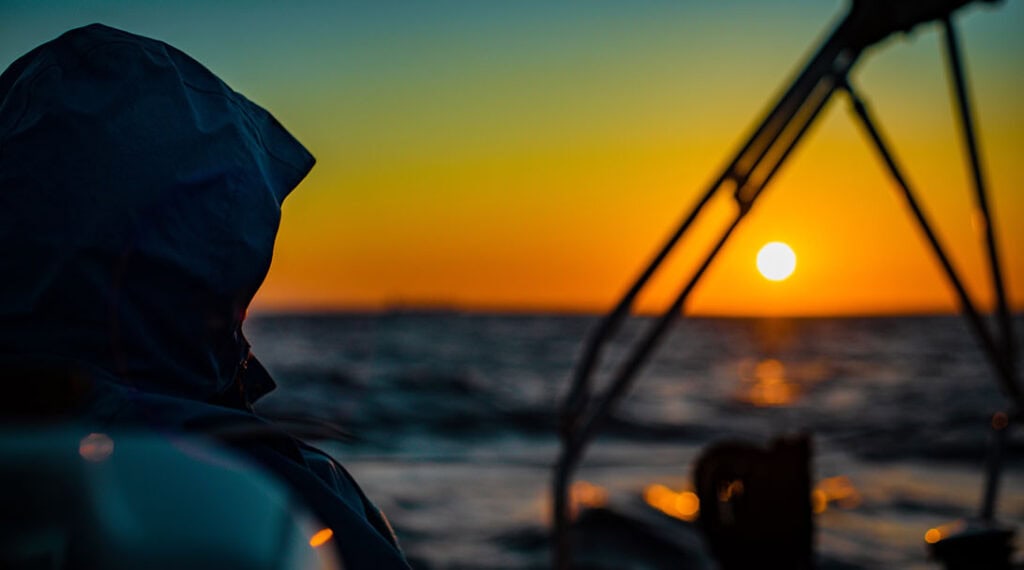
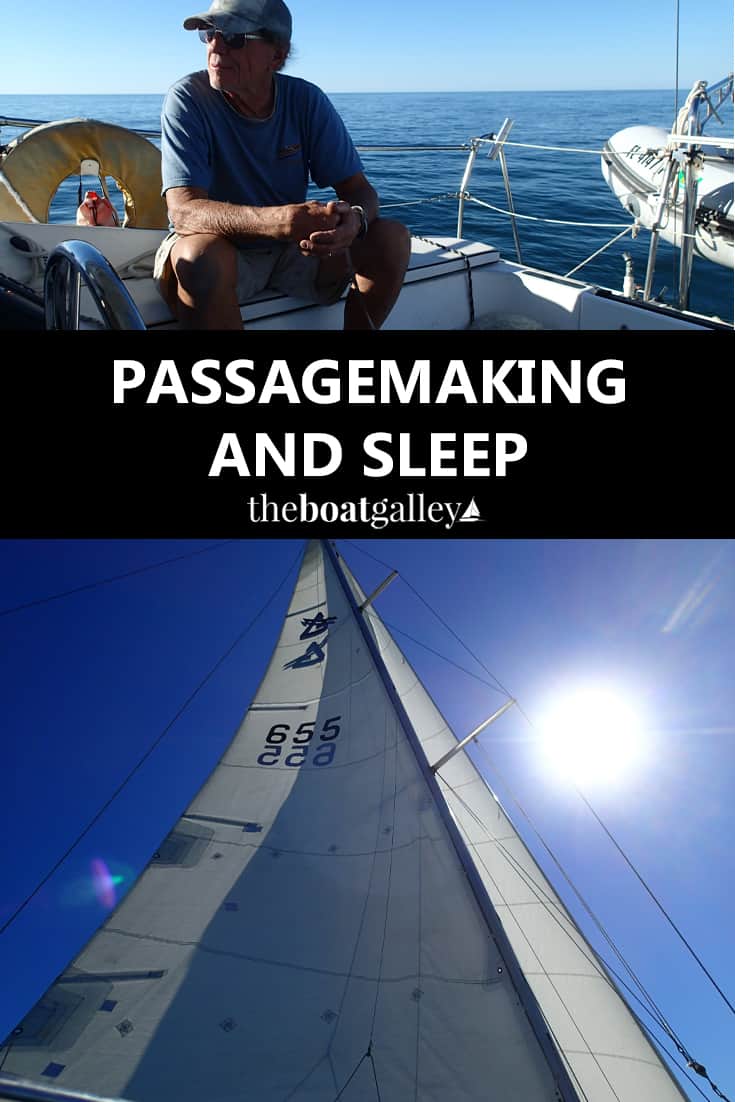



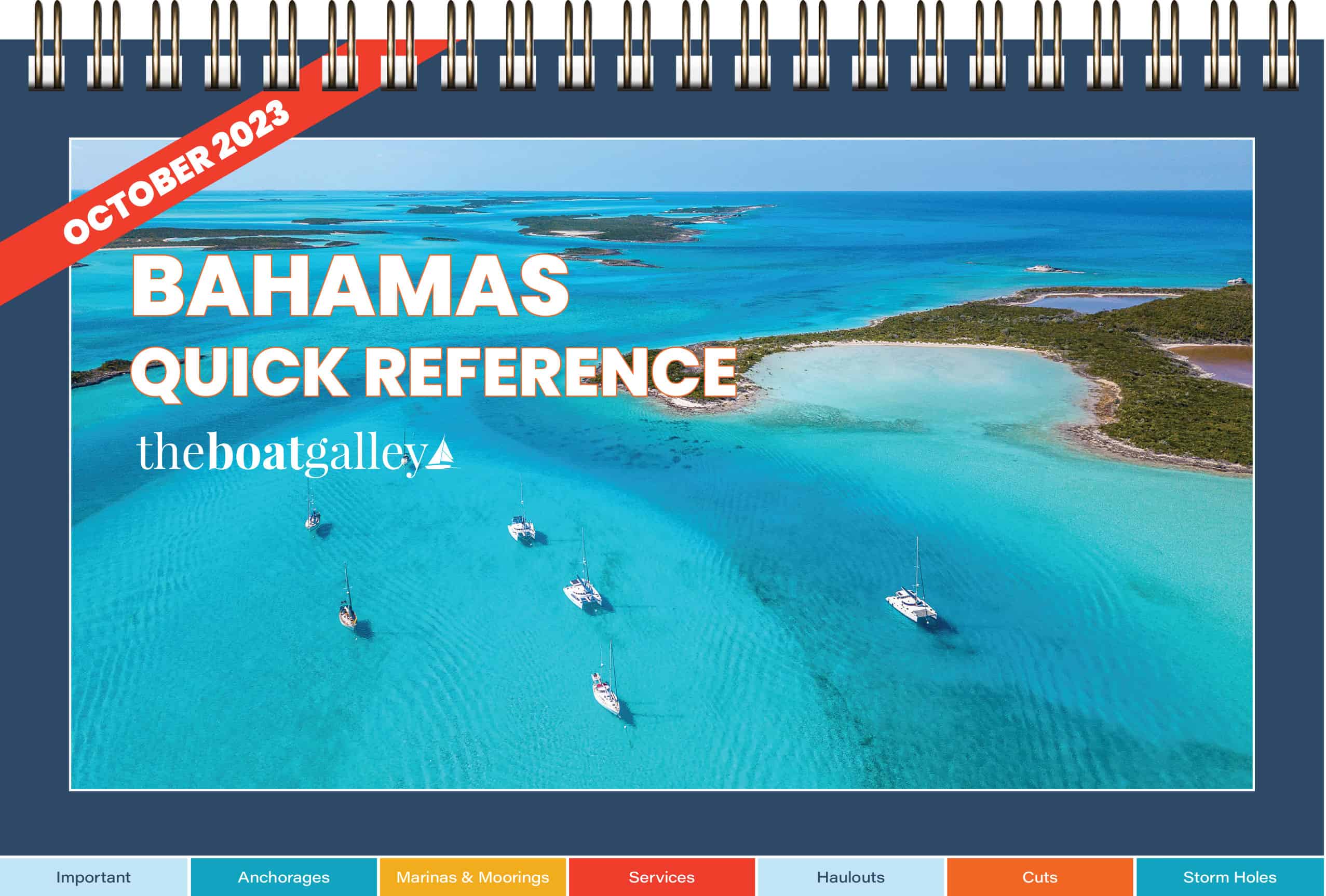
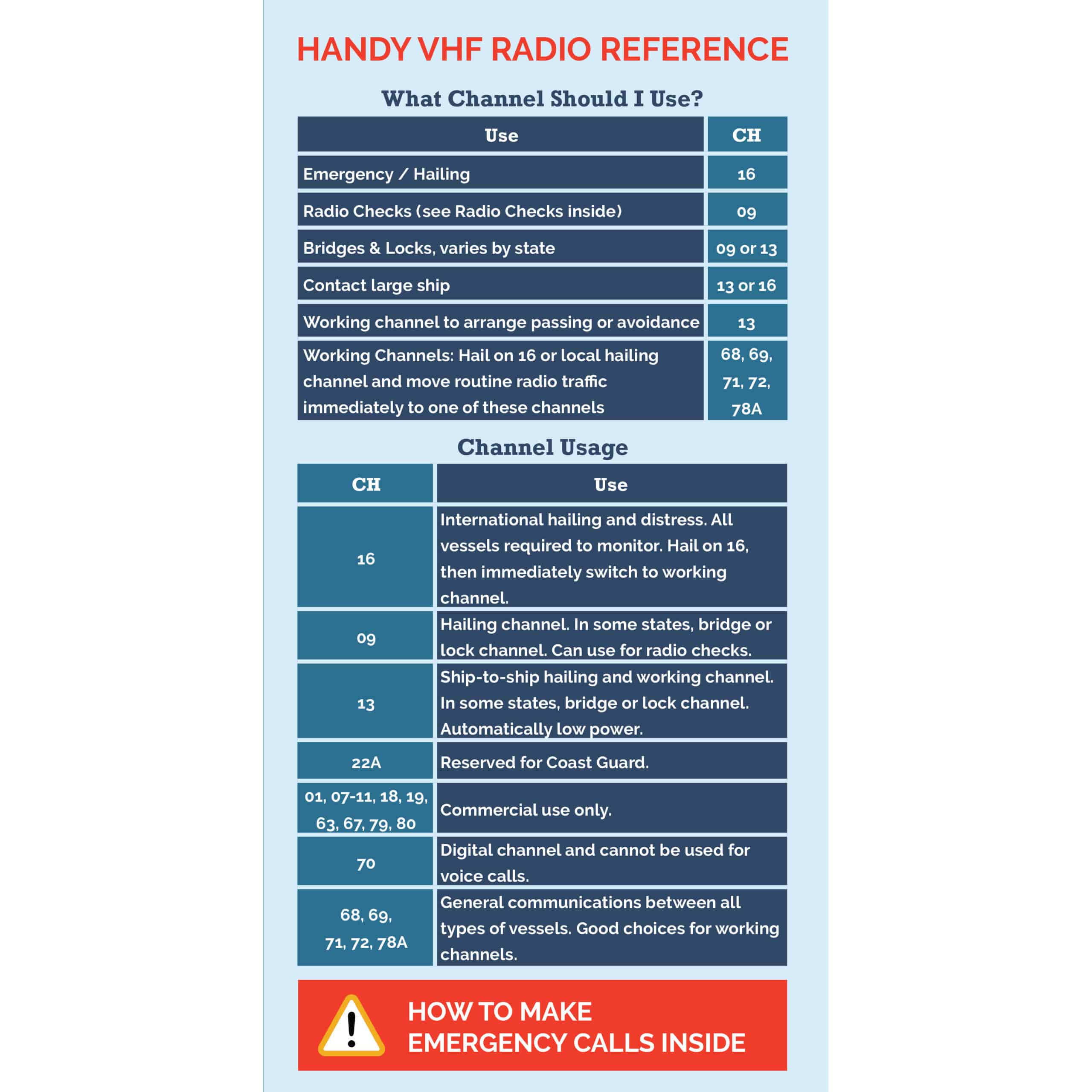



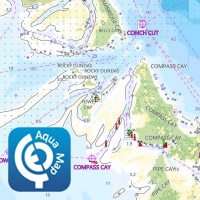
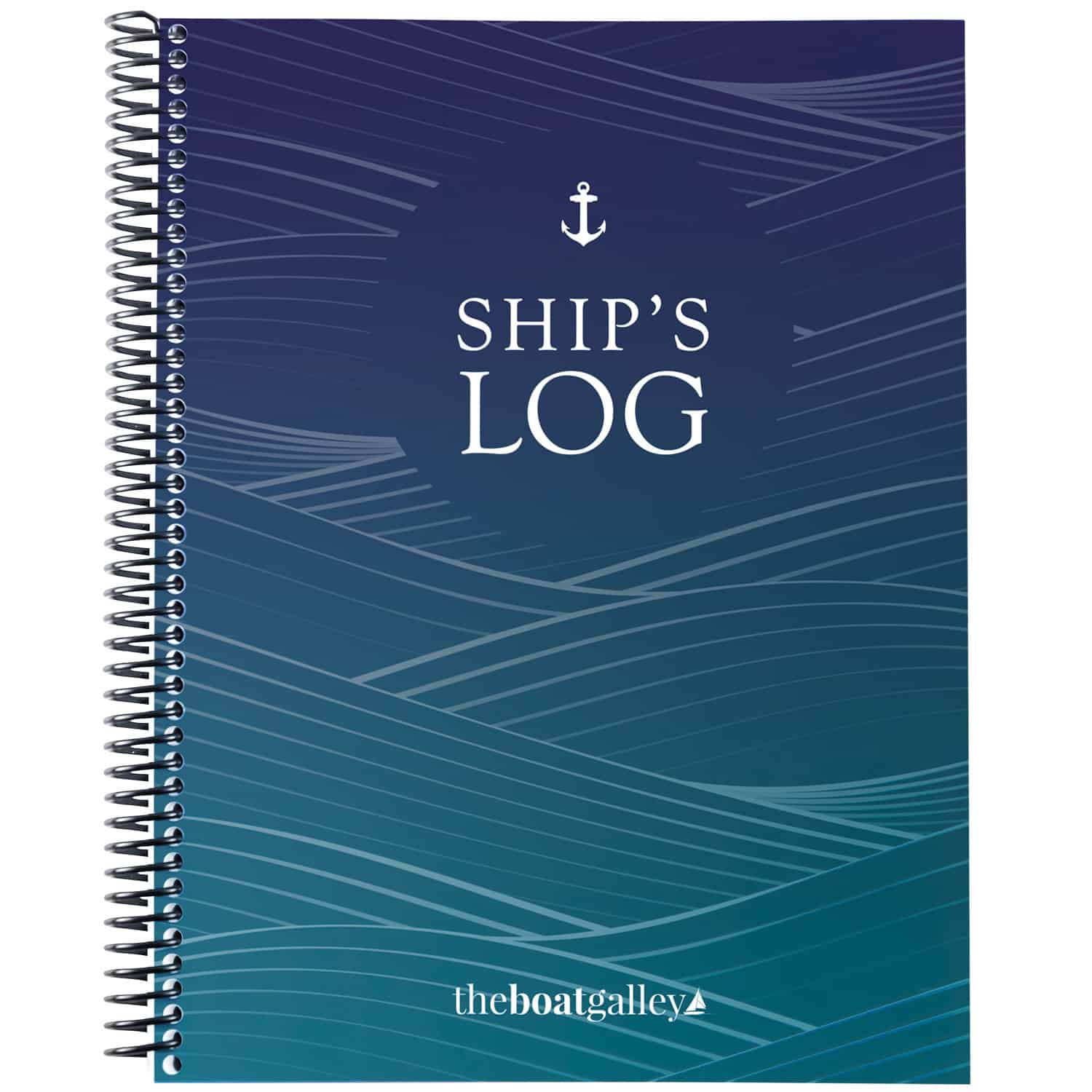
Carolyn Shearlock says
No, I have not circumnavigated. Cruised the Pacific coast of Mexico, Sea of Cortez down to El Salvador. Then Florida and the Bahamas, with charters in Alaska, Turkey, USVI, BVI and Spanish VI.